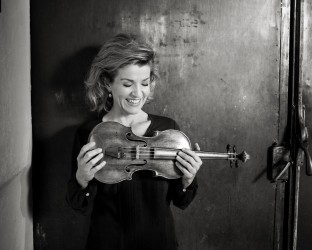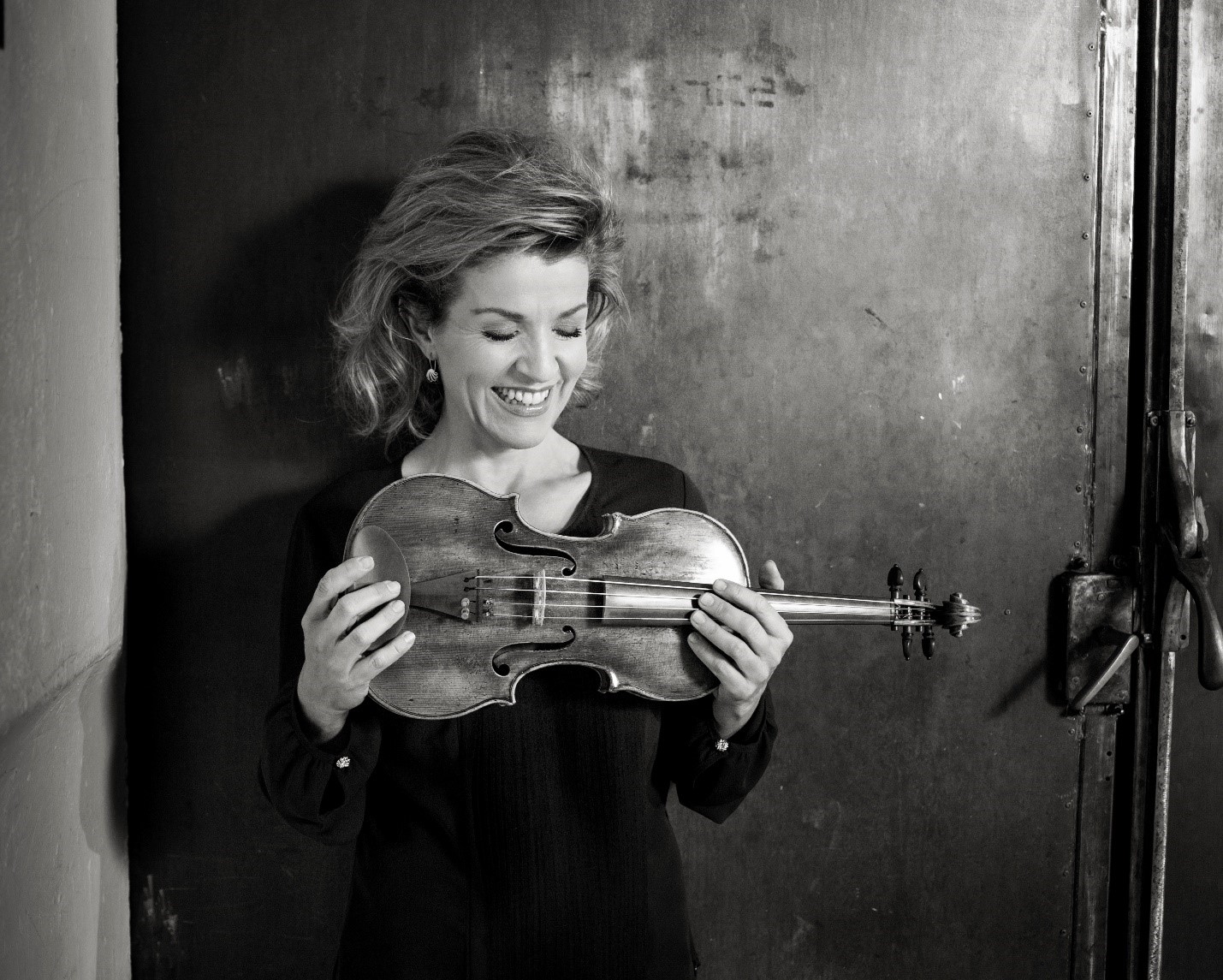 United Kingdom Penderecki, Tchaikovsky: Anne-Sophie Mutter (violin), Royal Scottish National Orchestra / Thomas Søndergård (conductor). Royal Concert Hall, Glasgow, 1.12.2018 (GT)
United Kingdom Penderecki, Tchaikovsky: Anne-Sophie Mutter (violin), Royal Scottish National Orchestra / Thomas Søndergård (conductor). Royal Concert Hall, Glasgow, 1.12.2018 (GT)

Penderecki – Violin Concerto No.2 ‘Metamorphosen’
Tchaikovsky – Symphony No.5 in E minor, Op.64
The engagement of the celebrated German violinist Anne-Sophie Mutter by the RSNO was a significant coup for this concert marking the 85th birthday of Krzysztof Penderecki. Sadly the composer had to cancel his scheduled appearance as conductor however his substitute was the orchestra’s music director Thomas Søndergård. Penderecki wrote his Second Violin Concerto for Mutter when he was inspired by her performance of the Prokofiev Second Violin Concerto in 1988 and here we could not have wished for a more authentic interpretation. Since its composition in between 1992 and 1995, Mutter has proved its most ardent champion performing it worldwide and making a fine recording with the composer conducting. The work continues the line of tragic canvasses reflecting mankind’s horrific history in the twentieth century; a tradition initiated by the composer’s breakthrough piece in memory of Hiroshima in 1964. Mutter was a glamorous figure on stage in her startling emerald green costume. ‘Metamorphosen’ opened with a stridently determined harmony on strings evoking the beating of the human heart in its steady rhythm. This developed throughout the strings and rose in tension to a high pitch on Mutter’s violin, played against the violas, and evolving into a weeping threnody on the whole orchestra. In the passages of the prolonged first movement, there was a chromatic tension on the violas, with exciting contrasting episodes in the orchestra and a lyrical passage on the solo violin. The great voices of Penderecki’s startlingly noble theme were played with great emotional power and the soloist struck up a dialogue with the violas, and with glimpses of percussion in brief clusters of sound, the effect was as if walking through a winter’s graveyard, or more likely walking through a battlefield after the fighting has stopped. The recitative on the violin was captivating, constantly drawing one into its emotional heart. Søndergård gave his soloist maximum support in this masterly piece and at the enlightened close dying away into an ethereal space of majesty. In response to the clamour of affection, Mutter gave an encore of the Sarabande from Bach’s D minor Partita, allowing the capacity audience a brief opportunity to judge her mastery and brilliance.
The Tchaikovsky Fifth is a work performed here almost every season so much is it a favourite of Glaswegian audiences, however this particular performance proved exceptional in that what had happened before the interval seemed to inspire this orchestra to even greater standards of playing. The mastermind of all this was Søndergård who is proving a quite astonishing talent here, constructing enlightening concerts of diverse repertoire. It seemed as if at some moments we were listening to a top Russian orchestra, the strings especially tended to have a rather Slavically controlled discipline allied with a silky sensitive sheen in the most glorious passages, notably in the third movement’s waltzes. This is a new quality in the RSNO playing and is now allied to the wind sections – from flute to bassoon – and the superb brass where there are musicians of world class. Over the years this orchestra has proved ideally suited to Shostakovich, Stravinsky and Prokofiev which is a tradition going back to Gibson and Järvi here in Scotland and enshrined in their successful recordings.
The quality of the clarinet solos were stunning in their colour and harmonic splendour and I liked the bassoon playing giving a rustic Slavic tint to the Russian folk melodies. In the slow movement, the horn solo in D major – and later the theme shared with the oboe – was marvellously characterised. The brilliance of the orchestra’s brass was magnificently displayed in the exciting finale, if anything, the sole weakness was the conductor’s enthusiasm for pushing on the tempi, without catching a pause in several transitional moments, but of course this is to emphasise the dramatic essence of the symphony. Certainly this magnificent performance – of what is generally considered a warhorse of the romantic Russian repertoire – was entirely due to Thomas Søndergård’s great work in preparation and conducting.
Gregor Tassie
